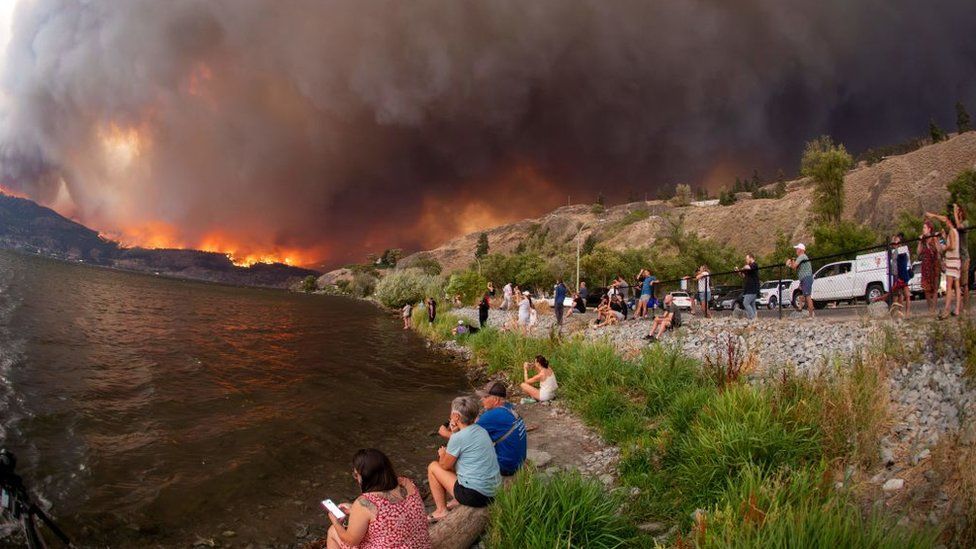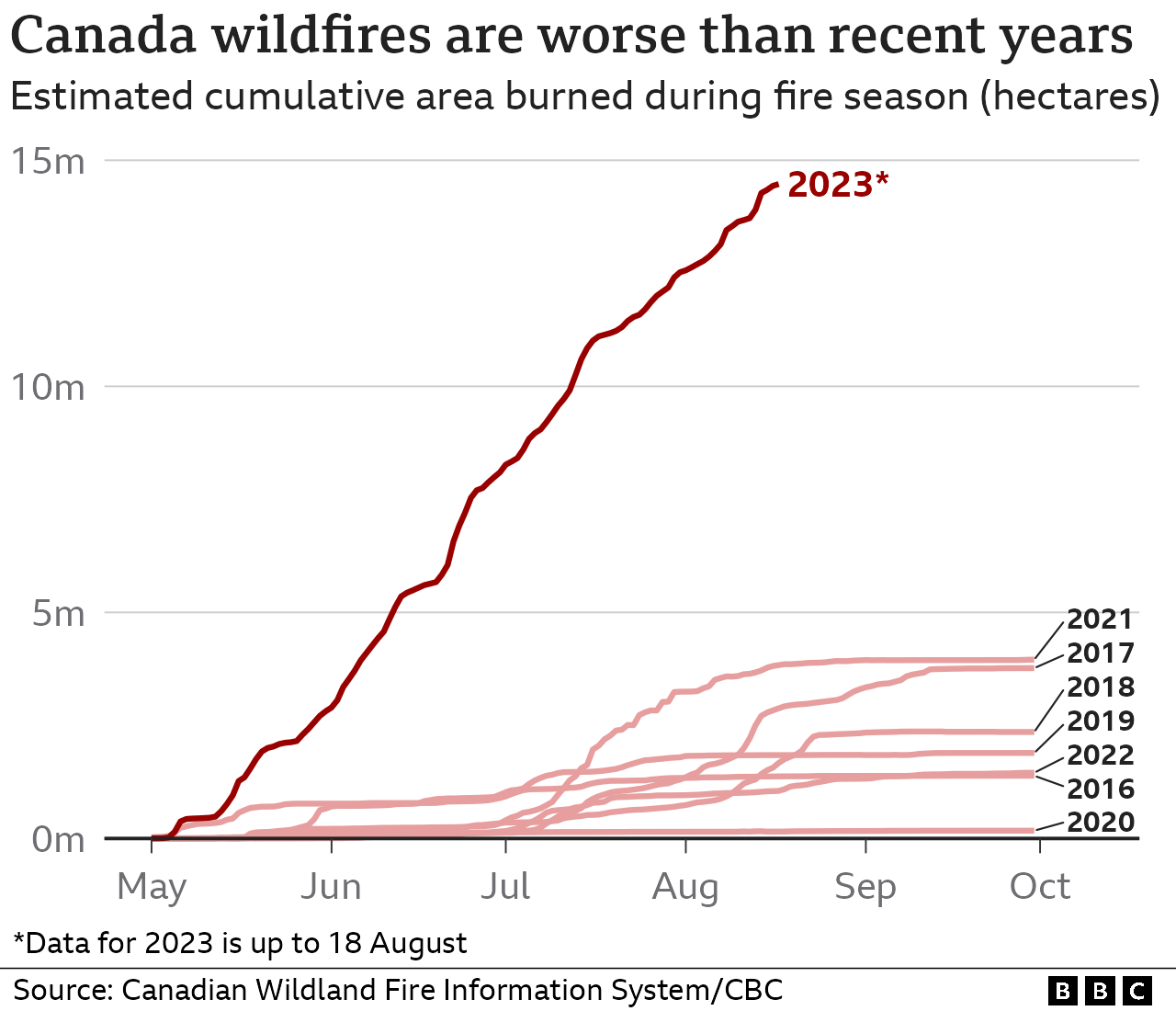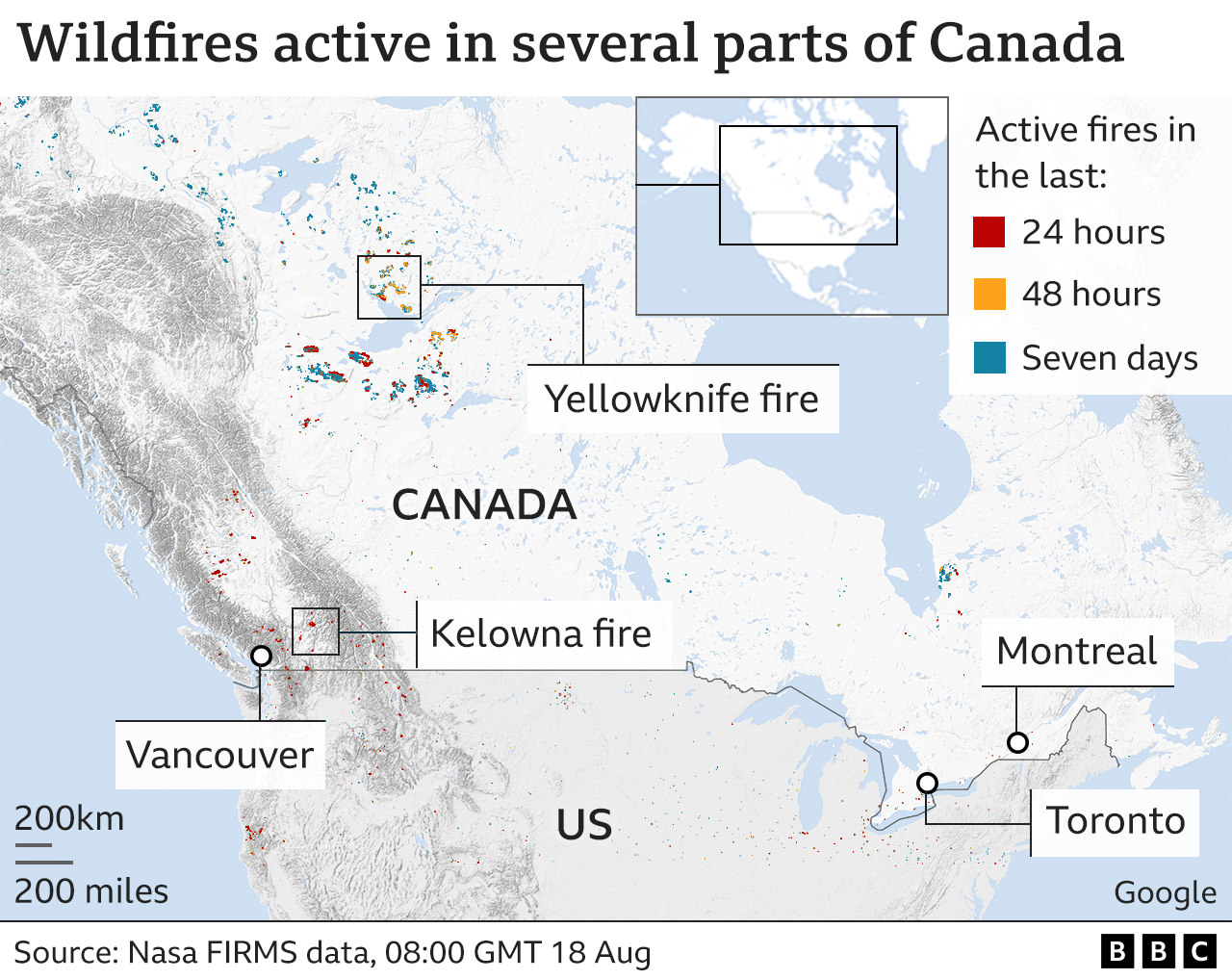
This article is more than
2 year old
Premier David Eby warned that "the situation has evolved rapidly and we are in for an extremely challenging situation in the days ahead".
The McDougall Creek wildfire has grown from 64 to 6,800 hectares in 24 hours.
Some 4,800 people are now under evacuation orders.
Separately, about 22,000 people - or roughly half the population - have been displaced in Canada's Northwest Territories because of another huge wildfire.
An official deadline to evacuate Yellowknife, the capital of Canada's federal territory, has now lapsed.
Residents have been scrambling to leave by air and road, in an effort to escape a wildfire moving towards the outskirts of the city.
"This year, we're facing the worst #BCWildfire season ever," Mr Eby wrote on Friday in a post on X, formerly known as Twitter. "Given these fast-moving conditions, we are declaring a provincial state of emergency."
The premier said this would ensure "that we're in a position to rapidly access any tools we need to support communities".
He said that more and more people were being evacuated, warning that "emergency orders could include travel restrictions to specific areas if people do not respect our calls to avoid non-essential travel".

Earlier, West Kelowna fire chief Jason Brolund described the wildfire as "devastating".
"We fought hard last night to protect our community. We fought 100 years worth of fires all in one night," he added.
Local officials have already reported "significant structural loss" in the area, including in Trader's Cove, just north of West Kelowna.
No deaths have been reported so far.
Juliana Loewen lives in Kelowna - a larger twin city of West Kelowna on the eastern shore of Okanagan Lake.
She told the BBC how locals had watched a plume of smoke coming over the mountainside like an "ominous cloud of destruction" and how some on the Trader's Cove side jumped into the lake as the fire spread and exit routes were blocked.
Her brother and grandmother fled to her house after "the fire jumped very quickly from one tree to an entire area, threatening an entire residential community".
Local residents are used to the fires because of a "California-style climate" in the area - but the heat, dryness and wind seen in recent days had created the "perfect conditions for a firestorm", Ms Loewen added.
The airspace around Kelowna International Airport has now been closed to everything other than aerial firefighters.

